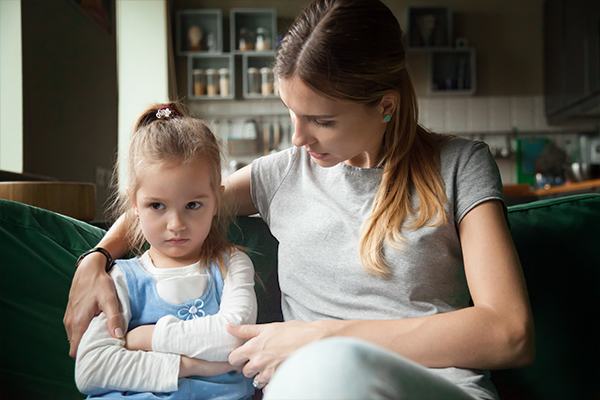Most people believe that their children are unaware of marital problems in the home. This could not be further from the truth. Children of all ages are acutely aware of the temperature in the home. In fact, I have heard many times that the children have expressed relief when their parents finally disclose their intention to divorce. Children not only need to know about their parents’ divorce, in many cases, they want to know about their parents’ divorce.
As for the question on how to communicate this to the children, there is not one standard way to do it. Even in a family with more than one child, each child will respond differently to this disclosure. So it is critical to evaluate the ‘when’, ‘where’ and ‘how’ to communicate divorce to children. This conversation will have a lasting impression for many years and decades after the conversation. Adult children will forever remember that specific conversation. For some, it will serve as just another milestone in their lives. For others, it is a harrowing nightmare that forever haunts them. Either way, it is critical that the parents carefully consider how to communicate this to the children in such a way that insulates them from any future anguish.
It is helpful to let the children know that the decision is final. This is because many children remain hopeful that their parents will be getting back together. That sense of hope can sometimes influence one or both parents to reconsider the decision to separate. This uncertainty and wavering can actually cause even greater heartache for everybody involved.
It is important that the children know that they are not at fault for their parents’ divorce. Some children will take on unnecessary guilt or shame about their parents’ divorce. They will create a mental story that the divorce was their fault, maybe even connecting it to a specific situation where they misbehaved. Do what you can to make it very clear that your children did not cause the divorce, and that there was nothing they could have done differently or better to make you stay together.
It is critical that the children hear similar messages from both parents. The messages must not contain any expression of blame or fault. The children need to know that the decision was made for the future well-being of everyone in the family.
Children do very well when they know that their parents are in control of the family and of the home. If you convey a sense of confidence in the future, the children will generally do very well. They simply want to know basic information such as where they will be living and what the changes will be in their life. If you do a really good job in agreeing to the details in advance and agreeing upon a plan, you are doing your children well through this difficult process.
Make sure your conversations are age-appropriate. The amount of information you give your child will depend on their age and developmental stage. Details about where they will live, when they will see their parent, how long they will spend with the other parent, and what they will have at each house (such as the family dog), is a great place to start.
Divorce is a reality of life. Your children will have many friends whose parents are divorced. It is very likely that they are more familiar with divorce than you may think. Some children have preconceived notions of what divorce means. Some children will think that divorce is pretty cool given what they have seen with some of their friends or classmates. Other children might think that divorce is a family disaster. You get to create your children’s own experience with your divorce. So make sure you handle it well. Read as much as you can about how to do this. Plan it out. Get the advice from professionals on how to manage this. Remain optimistic. Continue to show affection, confidence and assurance to your children. Make sure their memories of love, affection, and comfort are much stronger than any of the negative experiences associated with divorce.
Share this article on:

